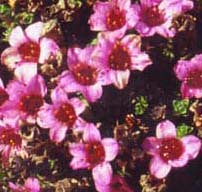
One of my field areas is this mid-size river in subarctic Eurasia. It is not only an important waterway, source of freshwater and (
sadly) a major outlet for industrial waste, it is also a potential climate archive for the past 100.000 years and an example of what some oil and gas reservoirs look like inside. It is several hundred kilometers long and a thorough study of its deposits and the mechanisms they reflect is probably going to be a lifetime of work. So far we are only scratching the surface. This year we went to five or six sites near the river mouth to investigate what happened to this river as sea levels fell and rose during the last ice age.
I have been a bit obsessed with this story ever since I worked on my dissertation and my advisor talked me into working on some previously published data in a new context. I don't think he really understood this new context himself*, and it took me a lot of overtime and detours to understand where the potential was. At the time I mainly saw the frustrations related to having to write a manuscript for my dissertation based on some data that were not appropriate for the kind of study I was trying to do. But somewhere buried under the frustrations I was also intrigued by the idea of some day going back and collect the right kind of data and do this the way it was supposed to be done in order to work.
This summer I got back to do my own work. It was raining practically every day, we stayed in an awful hotel in town because the ground was too soggy to put up a tent anywhere and we had to go out for dinner in our muddy field clothes each night because we couldn't cook for ourselves in the hotel. But we got some nice results. They didn't change the world from what I knew already, but they did confirm and strengthen some previous ideas based on what other people had done at some of the same sites, and they gave way to more questions and more field work next year. Some of the data will go into the manuscript from my dissertation, which is still sitting, barely touched, on my desk, but which I need to submit to a special publication of a journal in two weeks time. Some will go into another paper I'm going to submit some time next year. But the best part is that I'm pretty sure this will form the start of a lot of future work and presently it's the best foundation I've got for some day applying for a real grown-up grant from the research council.
*My former advisor is an excellent scholar in his field and I'm not trying to imply he doesn't know what he's doing, because generally he does. But, in this particular case I think he had gotten a bit too excited about some new technology that he didn't really know much about, but thought that probably a bright young PhD student could work something out with applying this method to "bunch of old data". Sadly no, either the PhD student wasn't bright enough or the entire idea was rubbish. It cost me about a year in overtime on the PhD, a whole lot of money and gave me only a database of "bunch of old data" which is not very much in demand.
Labels: geology, life of a field scientist, playing in the sandbox




2 Comments:
ahhh, I love those subarctic rivers. I'm super curious if it's one I know but of course, that might threaten the annonimity so I guess I'll just have to wonder.
Yeah, I was trying to talk about it in vague terms not to compromise my anonymity. But as I said it is on the eurasian continent, it is flowing from south to north and has a delta at it's mouth. It also has some heavy industry both near it's mouth and further upstream, so the sight is not as pretty as it could be. There used to be a lot of ferries going up and down this waterway, but since the break-up of the former political system about 15 years ago the economy has declined and so has obviously the ferry business. Now it's mainly heavy timber transport and the occasional ponton bridge being ferried from one site to another. There is a city of some hundred thousand+ inhabibants on the delta at the river mouth.
There, I almost said it.
Post a Comment
<< Home